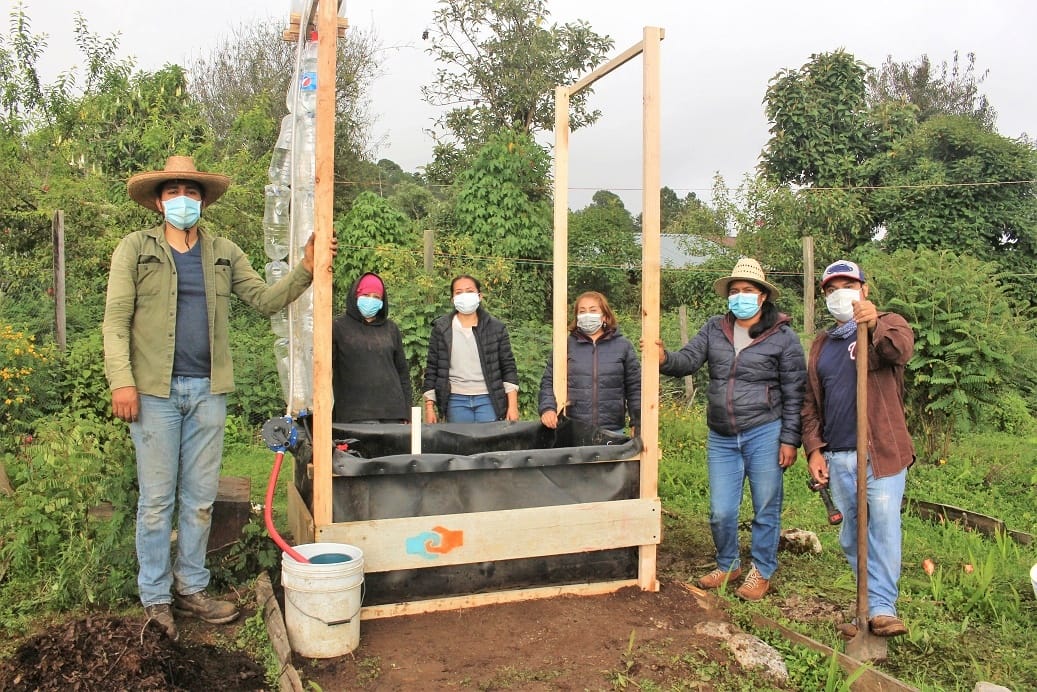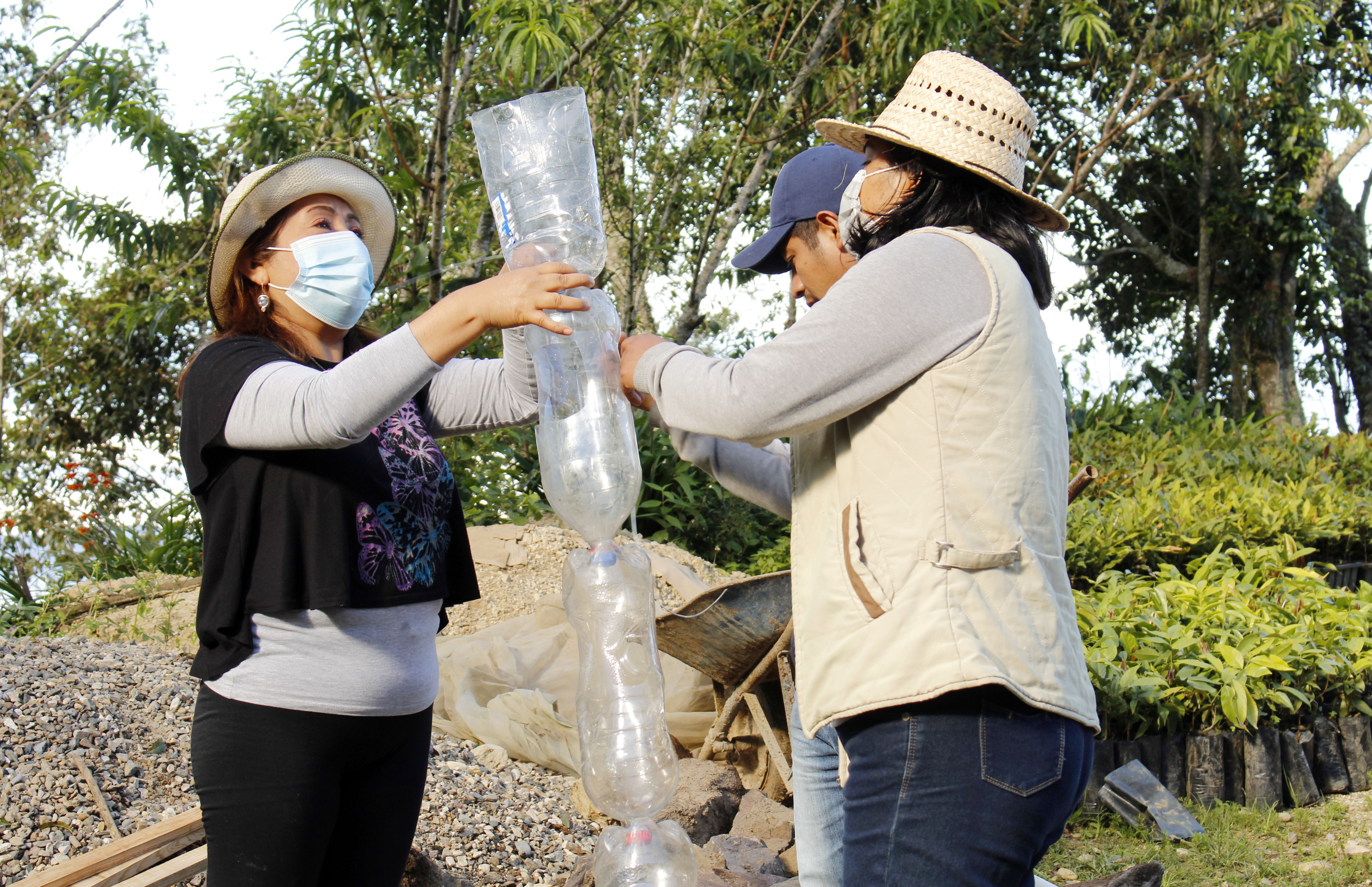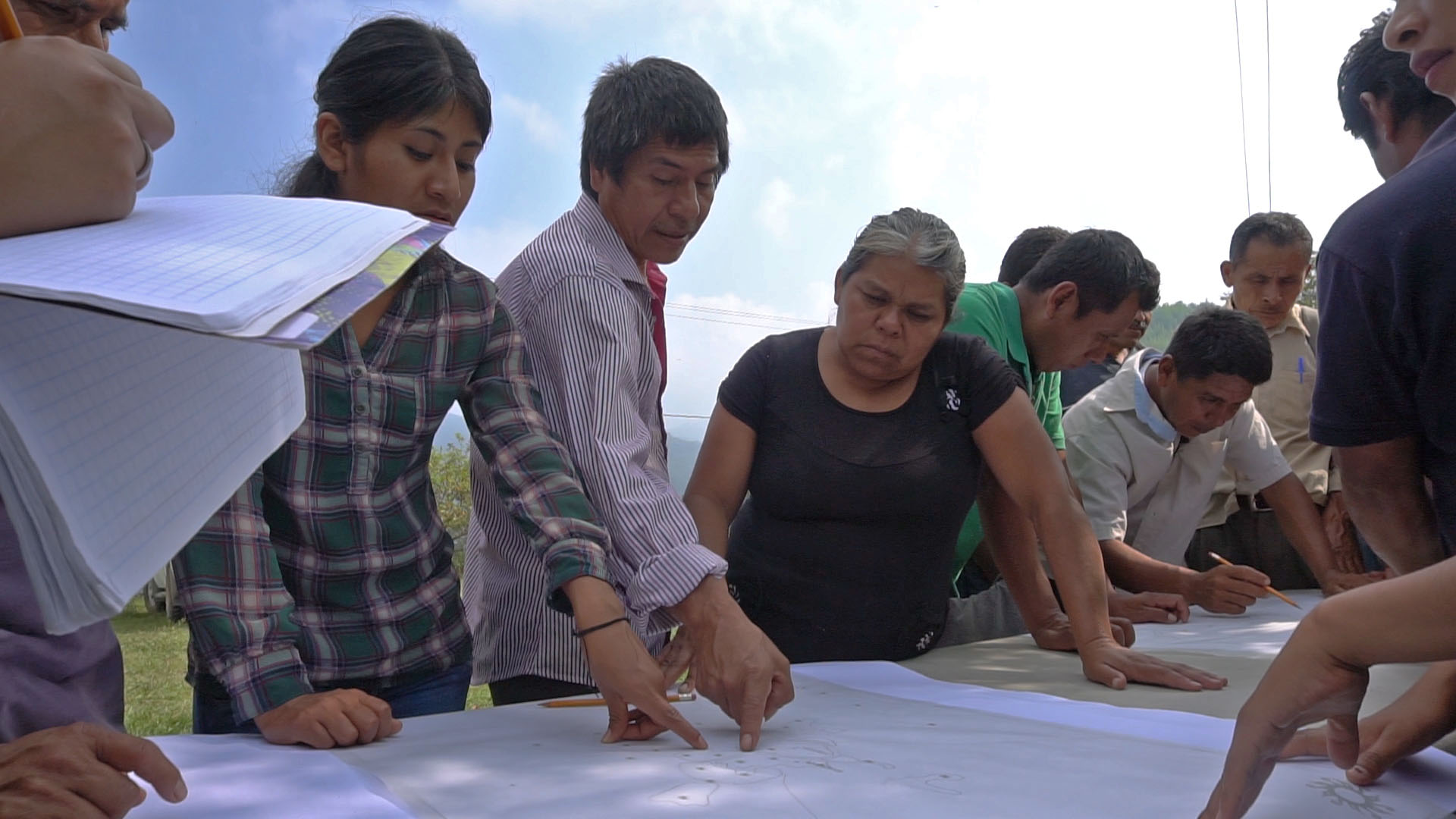ECOTECHNOLOGIES AND KNOWLEDGE-SHARING TO STRENGTHEN ADAPTATION CAPACITY IN MEXICO
Address structural inequalities
Build understanding
Collaborative action and investment
Devolve decision making
Ensure transparency and accountability
Flexible programming and learning
Invest in local capabilities
Organization: Espacio de Encuentro de las Culturas Originarias, A.C.
2023 LOCAL ADAPTATION CHAMPIONS AWARD WINNER
Espacio de Encuentro de las Culturas Originarias, A.C. focuses on adaptation to climate change at the local level in highly vulnerable communities in Oaxaca, Mexico. This region sees frequent droughts, frosts, and cyclones, and Oaxaca has a high population of women-led households. Here, communities are benefiting from affordable, relevant, and innovative ecotechnologies that make them better able to adapt to extreme weather events. This ultimately creates and strengthens the community’s capacities and ensures the project’s long-term sustainability.
The project engages communities in the development and implementation of ecotechnologies like dry toilets, energy-saving stoves, fog catchers, and vegetable patch irrigation systems. Members of the community attend workshops outlining the theoretical and practical elements of these ecotechnologies, and then they take ownership of their construction, use, and maintenance. Efforts are made to ensure the ecotechnologies are easy to replicate and can be modified to suit different communities’ specific needs, including using locally sourced materials. Through this work, Espacio de Encuentro de las Culturas Originarias, A.C. ensures people have the skills and knowledge to strengthen their community resilience. As General Coordinator Tzinnia Carranza López explains (in Spanish), “The community actively participate at every stage to identify the needs and problems in their community and seek solutions.”

Strengthening local capacity directly reduces people’s vulnerability to climate change. Espacio de Encuentro de las Culturas Originarias, A.C. has so far installed 808 energy-saving stoves that reduce wood consumption by 50%, which reduces CO2 emissions, avoids tree felling, and reduces women’s workloads, as women are often responsible for transporting firewood. Similarly, the installation of 882 dry toilets has increased community resilience to drought, and the creation of 90 waru waru crop fields and 35 fog catchers has helped people adapt agricultural practices to face the challenges of water scarcity.
“Utilizing ecotechnologies means people can produce their own food using agroecological techniques that are more resilient to extreme weather events,” Carranza López adds. The creation of biointensive kitchen-gardens contributes to food security by providing people with the ability to grow their own food, which impressed Minister of Foreign Affairs in Bangladesh and Jury Member His Excellency Abul Kalam Abdul Momen: “The initiative is helping build capacity of a highly marginalized community to use climate-resilient techniques to produce their own food, which is a basic need impacted by a range of climate hazards.”

The initiative takes a comprehensive approach to capacity building that relies on participants from different sectors of the community. Local government representatives are directly involved in planning activities, and community liaisons address the specific needs of their communities and act as interpreters for those who speak indigenous languages. To ensure accountability, semi-annual meetings are held with beneficiaries and authorities to report on the project’s activities and finances. This holistic approach drew praise from H.E. Momen, who noted that the initiative “focuses on accessibility and inclusivity through the use of intercultural approaches and inclusive language, which is essential for driving locally led adaptation.”
In operation for just over a decade, the project now reaches 15,000 people, including children, in several municipalities in Oaxaca: Candelaria Loxicha, San Juan Guichicovi, San Mateo del Mar, Santa María Tonameca, Santa María Yucuhiti, San Marcos Zapotalito, Santo Domingo Tehuantepec, Santos Reyes Nopala, and San Pedro Mixtepec. Global Center on Adaptation CEO and Jury Member Patrick Verkooijen praised the initiative’s “brilliant community engagement and solutions,” while fellow Jury Member H.E. Momen emphasized that “the capacity building efforts have a direct and immediate impact on the climate-affected population, and capacities are also being developed for self-management, which is crucial for long-term sustainability.”
The Local Adaptation Champions Award prize money will be utilized to create materials that document the development and implementation of this framework for capacity building. Personal reflections from members of the technical team and beneficiaries will provide a rounded view of best practices and lessons learned, which will ultimately facilitate these efforts being replicated by other organizations and in other geographies.

Applications in the Capacity Building category were received from individuals and organizations all around the world who are implementing a diverse range of innovations that support a continuous and evolving process of learning.
The Local Adaptation Champions Awards reward inspiring and scalable locally led adaptation efforts to address the impacts of climate change and build resilience in the most vulnerable communities. Global Center on Adaptation, climate change experts, and a high-level jury selected one winner in each of the four categories for 2023: Capacity Building, Business Adaptation Solutions, Innovation in Devolving Finance, and Women in Leadership. Over 500 applications were received from individuals and organizations for this year’s Awards, and applications came in from all over the world.
The four winners were presented with their Awards at an awards ceremony at the COP28 climate summit, and each winning project will receive €15,000 and get an opportunity to attend the Adaptation Fund’s readiness events.
“As the climate crisis continues to escalate, these Awards shine a light on community-led local adaptation measures that can effectively build resilience at the grassroots,” Verkooijen said. “We are excited to follow the winners’ journeys over the next year and beyond as they utilize the Award prize money and Adaptation Fund sponsorship opportunities to develop and scale up their work.”